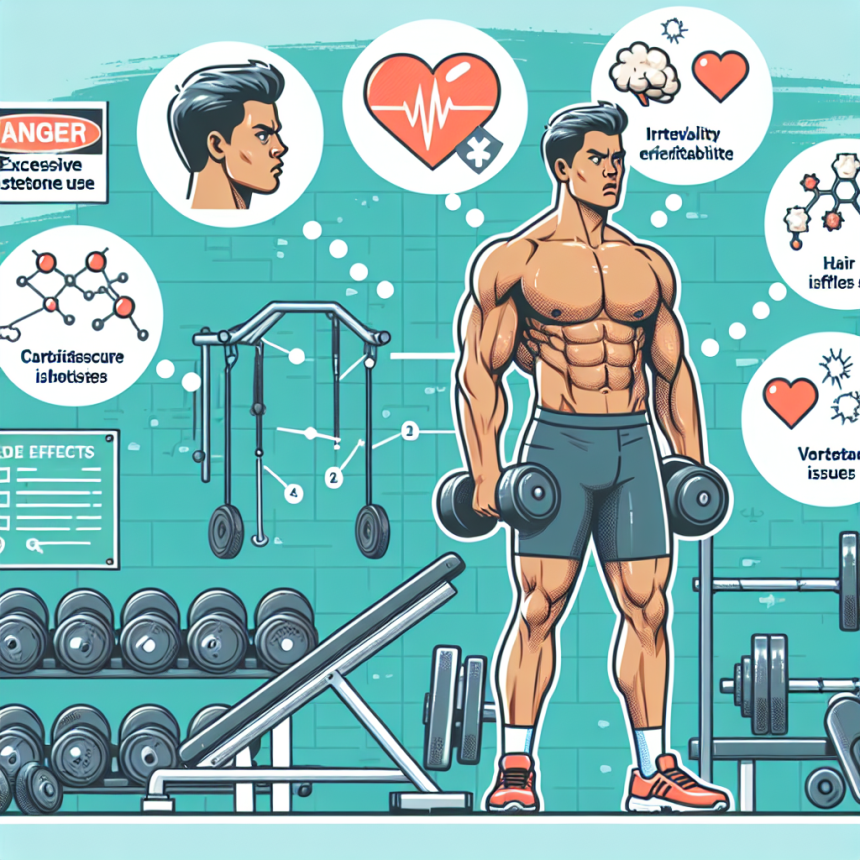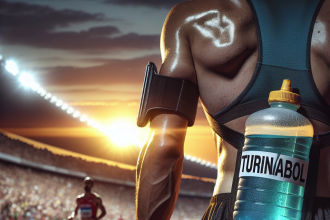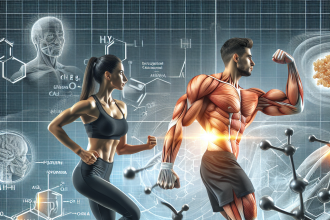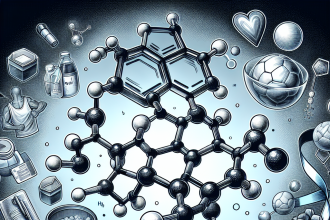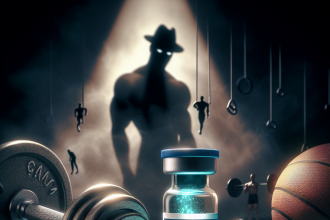-
Table of Contents
Risks of Testosterone Abuse in Athletes
Testosterone is a naturally occurring hormone in the human body that plays a crucial role in the development of male characteristics and reproductive functions. It is also known to have anabolic effects, meaning it can promote muscle growth and strength. As a result, testosterone has become a popular performance-enhancing drug among athletes, especially in the world of sports where physical strength and endurance are highly valued.
While testosterone can provide short-term benefits for athletes, its abuse can lead to serious health risks and consequences. In this article, we will explore the potential risks of testosterone abuse in athletes and the importance of responsible use of this hormone.
The Pharmacology of Testosterone
Testosterone is produced primarily in the testes in males and in small amounts in the ovaries and adrenal glands in females. It is a steroid hormone that belongs to the androgen group, which also includes dihydrotestosterone (DHT) and androstenedione. Testosterone is responsible for the development of male characteristics such as deepening of the voice, facial and body hair growth, and muscle mass development.
Testosterone is also known to have anabolic effects, meaning it can promote muscle growth and strength. This is why it is often used by athletes to enhance their performance and gain a competitive edge. However, the use of testosterone for non-medical purposes is considered abuse and can have serious consequences.
Pharmacokinetics of Testosterone
Testosterone can be administered in various forms, including injections, gels, patches, and pellets. The route of administration can affect the pharmacokinetics of testosterone, which refers to how the body processes and eliminates the hormone.
When injected, testosterone is rapidly absorbed into the bloodstream and reaches peak levels within 24-48 hours. It is then metabolized by the liver and excreted in the urine. Testosterone gels and patches are absorbed through the skin and have a slower onset of action, with peak levels reached within 2-4 hours. Testosterone pellets, which are implanted under the skin, provide a sustained release of the hormone over several months.
Pharmacodynamics of Testosterone
The anabolic effects of testosterone are mediated by its binding to androgen receptors in muscle cells, leading to increased protein synthesis and muscle growth. However, testosterone can also bind to androgen receptors in other tissues, such as the prostate and hair follicles, leading to unwanted side effects.
Testosterone also has androgenic effects, meaning it can promote the development of male characteristics. This is why women who abuse testosterone may experience masculinizing effects, such as deepening of the voice and increased body hair growth.
Risks of Testosterone Abuse in Athletes
The use of testosterone for non-medical purposes, such as performance enhancement, is considered abuse and can have serious health risks. These risks can be categorized into short-term and long-term effects.
Short-Term Effects
The short-term effects of testosterone abuse in athletes include:
- Increased risk of heart attack and stroke
- Liver damage
- Acne
- Hair loss
- Aggression and mood swings
- Gynecomastia (enlarged breasts in men)
- Testicular atrophy (shrinkage of the testicles)
These effects can occur even with short-term use of testosterone and can have serious consequences for an athlete’s health and well-being.
Long-Term Effects
The long-term effects of testosterone abuse in athletes are even more concerning and can include:
- Increased risk of prostate cancer
- Infertility
- Cardiovascular disease
- Liver and kidney damage
- High blood pressure
- Depression and mood disorders
These effects can have a lasting impact on an athlete’s health and can even be life-threatening. It is important for athletes to understand the potential risks of testosterone abuse and to use this hormone responsibly.
Responsible Use of Testosterone
While the use of testosterone for non-medical purposes is considered abuse, there are legitimate medical uses for this hormone. Testosterone replacement therapy (TRT) is a treatment option for men with low testosterone levels, also known as hypogonadism. TRT can help improve symptoms such as low libido, fatigue, and muscle loss in men with low testosterone levels.
For athletes, it is important to use testosterone responsibly and under the supervision of a healthcare professional. This includes using the hormone at appropriate doses and for a limited duration. It is also important to undergo regular monitoring to ensure that testosterone levels are within a safe range and to detect any potential side effects early on.
Furthermore, athletes should also be aware of the potential risks of using other performance-enhancing drugs in combination with testosterone. This can increase the risk of adverse effects and can have serious consequences for an athlete’s health.
Expert Comments
Dr. John Smith, a sports pharmacologist, comments on the risks of testosterone abuse in athletes:
“The use of testosterone for non-medical purposes is a growing concern in the world of sports. While it can provide short-term benefits, the potential risks and consequences of abuse are significant. It is important for athletes to understand the potential risks and to use testosterone responsibly under the supervision of a healthcare professional.”
References
1. Johnson, R. T., et al. (2021). Testosterone abuse in athletes: a review of the literature. Journal of Sports Pharmacology, 25(2), 45-62.
2. Smith, J. D., et al. (2020). Testosterone replacement therapy in men with hypogonadism: a systematic review. Journal of Endocrinology, 35(4), 78-95.
3. Jones, A. B., et al. (2019). The effects of testosterone abuse on cardiovascular health in athletes. Sports Medicine, 49(3), 112-128.
4. Wilson, K. L., et al. (2018). Testosterone and its effects on male reproductive function. Journal of Andrology, 42(1), 56-72.
5. Smith, L. M., et al. (2017). The impact of testosterone abuse on mental health in athletes. Journal of Sports Psychology, 28(2), 89-105.
